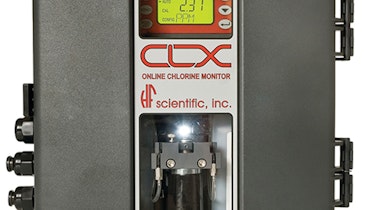Private companies are rarely criticized for hiring public relations firms to promote their image or advertising agencies to push their products.
But when public entities like water and wastewater agencies hire such firms for communications support, they can encounter a backlash. “You’re a monopoly,” goes the argument. “Why are you spending tax or ratepayer dollars just to make yourself look good?”
That argument doesn’t withstand scrutiny — public agencies rarely engage in mere image polishing. Money they spend on communications generally goes toward legitimate exercises in public education or public participation, sometimes required by law.
But when is it legitimate to bring in professional consultants? Or to dedicate staff to a public outreach campaign? At what point does spending for these purposes become excessive? And how can agencies deal with citizens’ concerns about communications investments?
Finding answers to those and similar questions is on the agenda for the Communications and Public Affairs Committee of the National Association of Clean Water Agencies (NACWA).
The association is dedicated to strengthening its strategic communications and outreach, and is expanding efforts to communicate the essential contributions clean-water agencies make to public health, the environment, the economy and quality of life.
Andrew Bliss is vice chair of the communications committee and community outreach manager for Capital Region Water, a municipal authority that owns and manages the water systems and infrastructure in and around Harrisburg, Pennsylvania. Bliss shared his perspectives in an interview with Treatment Plant Operator.
TPO: How did you come by your interest in public outreach?
Bliss: I come from a natural resources and geography background. I have a personal and academic interest in how we manage resources. While attending Bloomsburg University in northeast Pennsylvania, I was involved in grass-roots organizing for converting the coal steam boiler on campus to more renewable fuel sources. I went to graduate school at the University of Arizona but never finished my degree. There was a job opening as the Pennsylvania grass-roots coordinator at the Chesapeake Bay Foundation here in Harrisburg, and I grabbed it. That was a great job, working on clean-water projects throughout the state.
TPO: How would you describe the role of Capital Region Water?
Bliss: Formerly The Harrisburg Authority, Capital Region Water took over Harrisburg’s water systems in late 2013. We took on this challenge knowing that the systems had suffered from years of deferred maintenance. Our goal is to invest in our community and become the region’s premier water utility. It’s our responsibility to provide safe, clean and reliable drinking water, wastewater treatment and stormwater management.
On the drinking water side, we have about 250 miles of water mains, a 20 mgd water treatment plant, and about 8,000 acres of forestland around a beautiful reservoir. On the wastewater side, we have 130 miles of sewer pipe in a combined sewer system and a wastewater treatment plant that is being upgraded. The design flow is 40 mgd, and we receive on average about 20 mgd.
TPO: Where community outreach is concerned, what issues does your agency have?
Bliss: One reason we do community outreach is for regulatory requirements. We’re in the process of obtaining an MS4 stormwater permit since we have some separate stormwater systems. And as part of the NPDES permit for our combined sewer system, we have pollution prevention education, public participation and public notification requirements.
We could simply do the bare minimum, but our CEO Shannon Williams and our board want to make a genuine effort and investment in really educating people about the systems that serve them. People have a right to know what we’re doing with their system and how we’re putting the water bill revenue to work. If they are better educated, they can help us make better decisions.
TPO: Beyond public education and participation, are there other priorities for communications?
Bliss: We want to do outreach and education because our board has an interest in hiring employees from the community we serve. We believe that if we work more with the schools, offer more programs and get in front of people at fairs and festivals, we could start developing a channel of people who go from growing up in the community to working in our organization. We’re not unique in that we have an aging workforce, especially among our operators and field crews. We’ll definitely need to hire people continuously in the years ahead, and we want to do that locally as much as we can.
TPO: What do you observe about the role of communications in the industry today?
Bliss: There is definitely a trend, especially with some leaders like the Northeast Ohio Regional Sewer District, DC Water, and the San Francisco Public Utilities Commission, toward really investing in communications. The aims are to educate customers about pollution prevention, to help them understand where their bill payments are going, and to get them to appreciate the value of their services.
We talk about how there has been a lack of investment in infrastructure. There are a number of reasons for that, including less federal funding. But I would argue one reason is that we haven’t educated people on the importance of those investments and the importance of the services provided.
We say, “If only people understood the value of what we do.” But if we want them to understand, there’s a cost associated with that. If you want to do it right, it takes a lot of resources, a lot of staff time, and a lot of reaching out to people.
TPO: How is the NACWA committee addressing this issue?
Bliss: Our first project is trying to set standards for communications investments by clean-water utilities. We’re trying figure out, relative to the size of the service area, what types of projects and what types of materials and what levels of spending on consultants are appropriate so that an agency that gets questions about its spending from the public can say, “This is in line with industry practices.” The ultimate goal is to create a toolkit that prepares utilities to address questions or concerns about what they’re spending for communications.
TPO: Are utilities actually experiencing pushback from the public about their expenditures for communications?
Bliss: During the first conference call our committee held with utility communications specialists, we asked if that had been an issue in their service area. About 20 percent of those on the call said, “Yes, we’ve had concerns raised, we’ve had questions, we’ve had media reports done.” Then we asked, “Is this something you’re worried about?” And another 30 to 40 percent of those on the call said yes. So a majority of the communications professionals were saying they wanted to be prepared for any questions about those investments.
TPO: Has Capital Region Water received any pushback from the public or elected officials about your communications programs?
Bliss: We haven’t seen negative feedback yet, but with long-neglected and aging systems, our board is extremely cautious about using money appropriately —although they are totally on board with having an educated customer base.
TPO: What arguments do you recommend making toward justifying communications investments?
Bliss: First, some of our communications are to fulfill regulatory requirements — these are things we have to do to protect water quality and notify our customers. Second, it’s better for us to proactively communicate projects and potential service changes than to try to put fires out or react. I try to make the argument that there are ways to be visible without spending a lot of money. Third, our customers have a right to know what their water bills go toward and participate in major plans and decisions. Fourth, customers expect improved service when paying bills, reporting service issues, and being notified. All of this work requires staff time, materials and other resources.
TPO: What are some examples of lower-cost forms of communication?
Bliss: One of our engineers and I built a tap water bar out of wood pallets. It cost about $100. It’s something people want to have at their community events. There’s a little tap on it and we pour water for people. It’s a great vehicle for starting conversations about issues. We also have carnival games like a Can the Grease Toss, which is a great way for us to talk to people about the impact that FOG can have on our sewers.
TPO: Would you agree that there is a time and a place to hire professional communications services?
Bliss: There is no question about that. I don’t want to diminish the importance of professional services by saying, “Oh, you can just do it by making little stuff yourself.” You hire professionals for a reason. When The Harrisburg Authority became Capital Region Water two years ago, before I came on board, they hired a small advertising firm to develop branding, a logo, and a website. Sometimes, if you want to do things right and see results, you need to hire professionals, just like you do for other functions.
TPO: What did you learn in your previous roles as a grass-roots organizer that informs your belief in communications?
Bliss: A presenter at a recent board meeting said a utility’s job is to protect public health, protect the environment, and be a platform for economic development. I think utilities could do a lot more to get that message across to people. Working at an environmental nonprofit you see how much people value clean water and you talk about it in a different way. I think we can learn a lot from those groups.
TPO: When is it right and not right to use outside professional services?
Bliss: I can’t answer that. I think the NACWA committee is trying to figure out exactly what kinds of projects we should invest in communications for. For any project, a utility needs to figure out: What’s the most cost-effective way to do this? Where can we save money while still doing a good job?
TPO: What is the timetable for the NACWA committee’s work?
Bliss: We have finished the draft of a survey, and we’ll be sending it out to NACWA members and other utilities. I don’t know if we’ll get there, but what I hope we find out is, based on the service area population, or number of miles of sewers maintained, or the gallons of wastewater treated, this is what utilities are spending on average, here are the top activities they are investing in, and here are the reasons why utilities are investing in these projects. I hope that information will turn into a toolkit that utilities can use as a resource.





